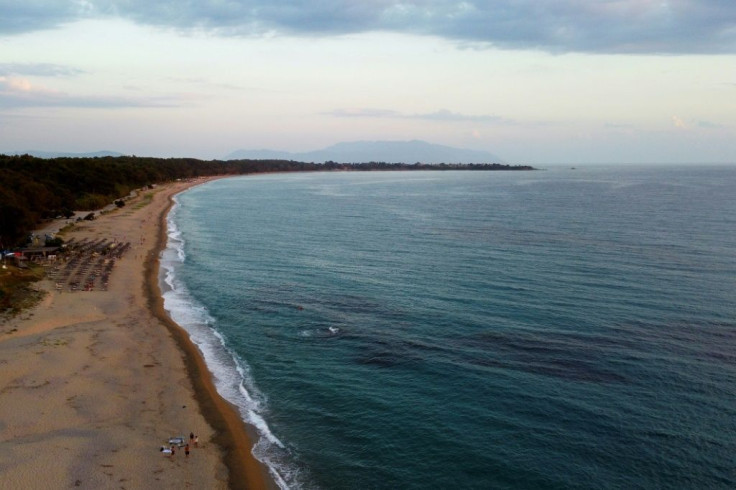Mysterious Snake-Like Sea Creature With Huge Jaw, Sharp Teeth Reeled In By Fisherman
A bizarre snake-like sea creature, which was caught by a fisherman in the Alaskan waters earlier this month, has been dubbed a "real life sea monster" on social media.
The 39-year-old fisherman, identified as Nate Iszac, recently shared the images of the mysterious creature on Facebook. Iszac was with his crew when he reeled in the creature, which was almost half the length of a grown man.
In the Facebook post, Iszac identified the creature as a wolf eel, which are not eels but fish. The photos of the creature, which has a gigantic jaw and razor-sharp teeth, went viral on social media.
"When we saw it there was a nervous excitement in the air. I have seen them before and know they can bite very hard so we were cautious," Iszac wrote in the post.
Social media users were baffled to see the mysterious creature, with many saying that it looked like a snake or an alien.
"Glad it didn't bite you - the choppers on that thing, it looks vicious," one user wrote. Another user wrote: "That’s terrifying looking but according to the comments, not aggressive? I’d pass on seeing one in person though."
Iszac wrote after finding the creature and taking pictures, he put it back in the water.
There have been several times in the past when fishermen have found mysterious and bizarre-looking sea creatures. Sometimes these creatures get reeled in while fishing or in other cases they wash up on beaches.
Last month, a beachgoer in the U.K. came across a mysterious sea creature that had washed up on the shore. Holly Asargiotakis said she was "startled" to discover the enormous animal, which looked like an eel. The 29-year-old hairdresser said the creature was 4-6 feet long.
"Dash went up to it at first, probably thinking the same as us, then we kept him away from it. He was very interested," Asargiotakis said at the time. "We didn't know what it was at first. A lot of people have been saying it's normal, but I'm really not a fan of the sea."
"I don't like swimming in the sea, and this proves why," she added.






















